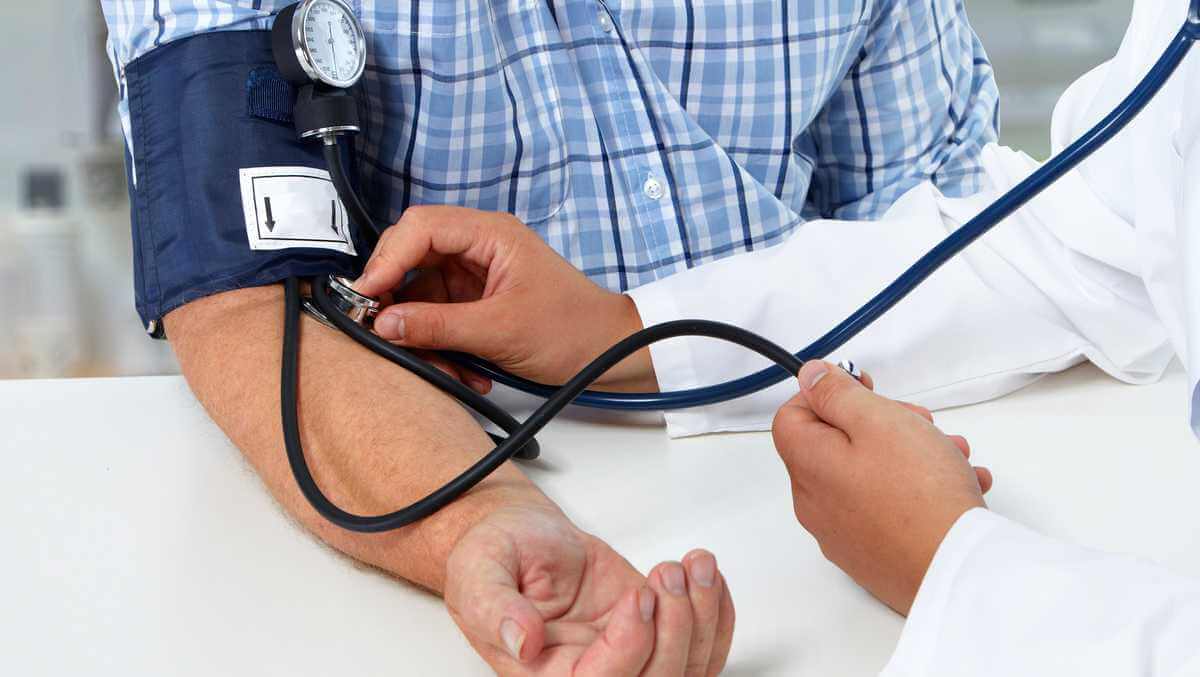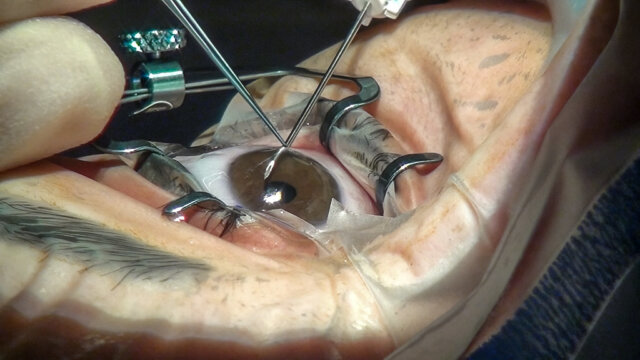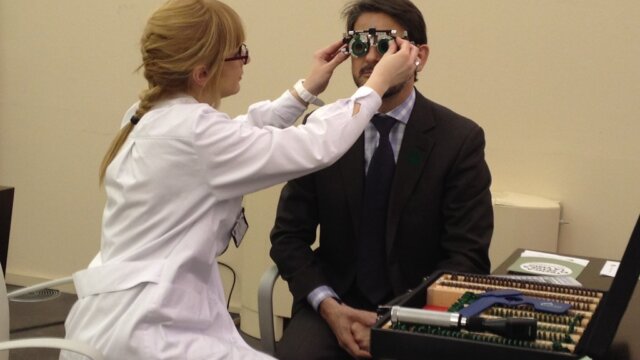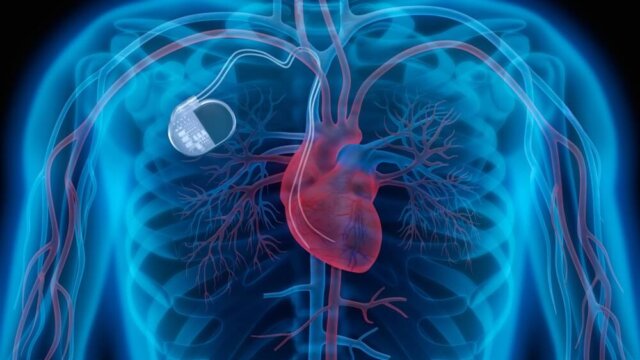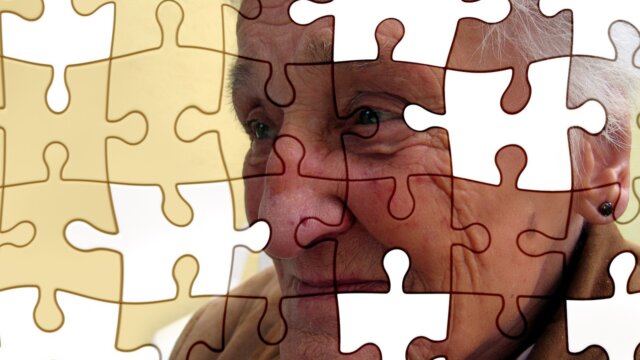FTC disclaimer: This post may contains affiliate links and we will be compensated if you click on a link and make a purchase.
Effects of high blood pressure (HBP) can be severe if it is uncontrolled or resistant to treatment for a long time.
Because of this, Hypertension is referred to as a silent killer. The effects of Hypertension are usually seen after an extended period, like ten years or more, depending on the severity.
So, it’s imperative to keep your blood pressure (BP) controlled below 140/90.
High blood pressure primarily affects the blood vessels (arteries), causing damage (Atherosclerosis) leading to leaking (hemorrhage) or blockage (ischemia).
When arteries get damaged, organs in our bodies will be affected and damaged as well.
The organs affected are the brain, eyes, heart, kidneys, sex organs, intestines, and pregnancy. It will cause many symptoms and signs.
The diagram below shows the expected effects.

Here, we list down the organs or body parts that will get affected due to the effects of high blood pressure;
- Blood vessels (Atherosclerosis)
- The brain
- The eyes
- The heart
- Sex organs
- The kidneys
- Pregnancy (mum and fetus)
- Intestines
- Legs (peripheral vascular disease)
- Nerves
Let’s dive deeper to understand the complications of Hypertension on body organs and arteries.
The blood vessels (arteries)
When high blood pressure is left untreated or uncontrolled, it will damage the arteries in our body. The whole process is called Atherosclerosis.
Atherosclerosis is a complicated process, but let’s try to understand it more straightforwardly.
Atherosclerosis is a process in which it damages the arteries because of chronic Hypertension and other diseases like diabetes, high cholesterol, and smoking.
When an artery is injured, some inflammatory processes will take place. Cells called macrophages and fat (oxidized lipids) will accumulate on the injured site to form “fatty streaks.”
Cytokines and growth factors will also cause growth in smooth muscle cells to foam a “fibrous Cap.”
The “fatty streaks” and “fibrous Cap” will foam what’s called an atheroma.
With time the atheroma will grow. As a result, it will cause rupture of the artery or obstruction (ischemia).
When an artery ruptures or is blocked, the blood supply to an organ or tissues will be disrupted. Subsequently, it will cause organ damage in the long run.
How Atherosclerosis affects arteries?
Atherosclerosis is responsible for most of the complications of high blood pressure.
It is essential to know that different types of arteries will be affected. Big (macro-vascular) and small (micro-vascular) arteries will be affected differently.
Moreover, Macro-vascular complications will damage big arteries like the aorta, coronary arteries, renal arteries, arteries in the legs, and others. The effects of macro-vascular complications will lead to;
- Coronary heart disease (angina, heart attack)
- Stroke (ischemic)
- Peripheral vascular disease (claudication)
- Carotid stenosis
- Aortic dissection
- Aortic aneurysms
In contrast, Micro-vascular complications will damage small organs’ small arteries like the eyes, kidneys, and nerves. The effects of Micro-vascular complications will lead to;
- Hypertensive retinopathy in the eyes
- Nephropathy in the kidneys
- Neuropathy (damage to the nerves)
With the above understanding of how arteries are damaged, here we will see the explanation of how high blood pressure affects each organ below;
The Brain
Effects of high blood pressure on the brain include;
- Complete stroke
- Transient Ischemic Attack (TIA)
- Reversible Ischemic Neurological Deficit
- Intracerebral hemorrhage
- Delirium
- Dementia
Complete Stroke
Complete stroke is characterized by a sudden onset of a focal or localized neurological deficit due to a bleeding artery (hemorrhagic stroke) or artery blockage (ischemic stroke).
When the blood supply to a particular part of the brain is disrupted, that brain area will die (infarct) or malfunction.
As per studies, Ischemic Stroke is the commonest at 80% and Hemorrhagic Stroke at 20%. Symptoms will vary depending on which part of the brain is affected.
Transient Ischemic Attack (TIA)
Transient Ischemic Attack is a mild stroke with neurological symptoms that will last only a few minutes to 24 hours.
Studies have observed that 10-15% of people with TIA will have a complete stroke within three months.
Moreover, careful treatment is required to prevent further stroke attacks and also diminish the effects of the Transient Ischemic Attack.
Reversible Ischemic Neurological Deficit (RIND)
A reversible Ischemic Neurological Deficit is also called a minor stroke. It has similar neurological symptoms as a complete stroke, but the patient will recover within 24-36 hours of onset.
Studies have shown that Reversible Ischemic Neurological Deficit has been associated with severe Hypertension.
They will usually fully recover, but a few neurological deficits may be left.
Subarachnoid Hemorrhage (SAH)
Subarachnoid Hemorrhage is bleeding into the subarachnoid space in the brain. According to studies, severe high blood pressure has been associated with Subarachnoid Hemorrhage.
The effects of Subarachnoid Hemorrhage may be a severe headache as the initial symptom. Other symptoms like nausea, vomiting, photophobia, neck stiffness, etc., will follow.
Intracerebral Hemorrhage
Intracerebral Hemorrhage is bleeding within the brain parenchyma itself.
According to a research paper, Intracerebral Hemorrhage accounts for 10% of strokes. The effects of this bleeding may have the same signs of subarachnoid hemorrhage.
Dementia (multi-infarct dementia)
Dementia can be abrupt or step-wise impairment of cognitive function, i.e., memory, recall, orientation, language, etc.
According to a research study, chronic high blood pressure will cause multiple infarcts in the brain leading to multi-infarct dementia.
Delirium (acute confusional state)
As per studies, Hypertensive encephalopathy will cause an acute confusional state. It is characterized by decreased alertness, attention, concentration. These symptoms worsen at night, known as “sundowning.”
These are the most common complications of Hypertension on the brain.
The eyes
Effects of high blood pressure on the eyes include;
- Hypertensive retinopathy
- Transient monocular blindness
The damage of the Retinal and Ophthalmic arteries that supply blood to the eyes will cause blindness in the long run. The type of vision loss include;
Transient Monocular Blindness
Transient Monocular Blindness is a Retinal Ischemia resulting in a sudden, complete, and temporary loss of vision in one eye.
Moreover, studies have shown that elevated high blood pressure can contribute to vision loss. Vision loss is usually due to emboli (blockage) to the ophthalmic and retinal arteries.
Retinopathy
Chronic Hypertension will cause damage to the eye. The effect of HBP will cause the retina and the small blood vessels in the eye to be damaged and narrowed.
High blood pressure will also cause some micro-aneurysms retinal hemorrhages (blot), which will lead to retinal ischemia.
The nerve fiber layer will also infarct (die), resulting in what’s called “cotton wool spots” and optic disc edema.
Moreover, clinical trials have shown that hypertensive retinopathy is the leading cause of blindness in North America between the ages of 20 and 75.
The Heart
Effects of high blood pressure on the heart include;
- Coronary heart disease
- Heart failure
- Arrhythmia
- Valvular heart disease
The major arteries that supply the heart, coronary arteries, and other arteries may be damaged by Atherosclerosis.
When the arteries are narrowed, blocked, or ruptured, the heart will not get enough blood supply.
Hence the lack of oxygen and glucose will result in below heath conditions.
Coronary (Ischemic) Artery Disease
According to the studies, elevated high blood pressure may damage coronary arteries.
The damage of coronary arteries will result in the following health conditions;
- Stable angina (chest pain relieved by rest)
- Unstable angina (chest pain not relieved by rest)
- Myocardial infarction or heart attack
- Sudden cardiac death
Heart failure
Heart failure is when the heart cannot maintain enough or adequate cardiac output to meet the body’s demands.
Moreover, heart failure can be both left and right or either. According to research studies, chronic high blood pressure will contribute to the increased end-systolic ventricular pressure, leading to pressure overload on the heart.
Moreover, the end-systolic ventricular pressure overload will lead to hypertrophy (thickening the heart muscle). And the result of hypertrophy will cause heart failure due to decreased cardiac output.
Arrhythmia
Arrhythmia is a heart disease when the heart does not beat regularly or normally.
Studies reveal that uncontrolled Hypertension will cause coronary heart disease, which will cause arrhythmia.
Moreover, the arrhythmia effects can be severe and are a significant cause of death.
Aortic Regurgitation (valvular heart disease)
According to research studies, elevated blood pressure will damage the aortic valve of the left ventricle of the heart due to the occurrence of Atherosclerosis.
When the aortic valve is damaged, it will malfunction, and subsequently, it will cause Aortic Regurgitation. However, Aortic Regurgitation may cause heart failure if not managed well.
The Kidneys
Effects of high blood pressure on the kidneys include;
- Kidney failure
- Ischemic renal disease
- Hypertensive nephrosclerosis
Chronic and uncontrolled high blood pressure will cause damage to the arteries which supply blood to the kidneys.
The kidneys will stop functioning correctly, which may lead to kidney failure. The effects of this damage occur in many ways described below;
Ischemic Renal Disease (Renal Artery Stenosis)
Ischemic Renal Disease is narrowing or stenosis of the renal artery caused by Atherosclerosis.
Studies reveal that when the narrowing occurs, it will reduce the kidneys’ blood supply, leading to renal failure.
Hypertensive nephrosclerosis (nephropathy)
Hypertensive nephrosclerosis thickens the small capillary basement membrane and glomerular mesangium cells.
Moreover, studies have shown that Hypertensive nephrosclerosis will reduce blood supply to the glomerulus. Subsequently, it will lead to renal insufficiency. The process is also called Glomerulosclerosis.
However, Glomerulosclerosis will lead to renal failure if not treated early.
Sexual organs
The effects of Hypertension on sexual organs include;
Erectile Dysfunction
Erectile dysfunction is the inability to obtain and maintain an adequate erection for sex that is recurrent and consistent for more than three months.
According to studies, it reveals that during Atherosclerosis it narrows the arteries to the penis, and as a result, it reduces the blood flow during an erection.
Erectile dysfunction is prevalent in men above 50 years of age and has other diseases like diabetes.
Neurogenic Bladder (both men and women)
Neurogenic Bladder occurs when the Bladder does not function properly due to damage of its nerves (Neuropathy) by high blood pressure.
Moreover, the study stated that Neurogenic Bladder might cause urinary retention or a “loose bladder,” that is, someone who cannot control his Bladder.
Intestines
Intestinal Ischemia
When the arteries that supply the intestines (superior and inferior mesenteric arteries) are blocked or narrowed due to Atherosclerosis, the intestines are left with inadequate blood supply.
Clinical trials have shown that the effects of Intestinal Ischemia damage will lead to intense pain after meals and weight loss.
Nerves
Neuropathy
According to research studies, Hypertension contributes to Neuropathy, where its damage (ischemic infarction) nerves due to a lack of adequate blood supply.
Neuropathy is one of the common complications of high blood pressure. In Neuropathy, Atherosclerosis occurs in the arteries that supply blood to the nerves.
Moreover, Neuropathy will manifest in 3 different ways;
- Sensory Neuropathy – tingling, itching, numbness, decreased perception of pain and temperature.
- Motor neuropathy – delayed motor conduction, muscle weakness
- Autonomic Neuropathy – alternating diarrhea and constipation, urinary retention, and erectile dysfunction
Legs (peripheral arterial disease)
Peripheral arterial disease is a chronic disease caused by artery occlusion or narrowing due to Atherosclerosis.
However, Peripheral arterial disease usually affects the lower extremities like the legs. It usually starts with pain with exertion, usually in the calve muscle relieved by rest.
Moreover, the pain occurs repeatedly with the same or less distance.
Further, it may be accompanied by;
- Hair loss
- Muscle weakness (atrophy)
- Skin ulceration (wounds)
- Redness
- No pulses
Research studies have concluded that Peripheral arterial disease is one of the expected effects of high blood pressure, especially in the elderly population.
